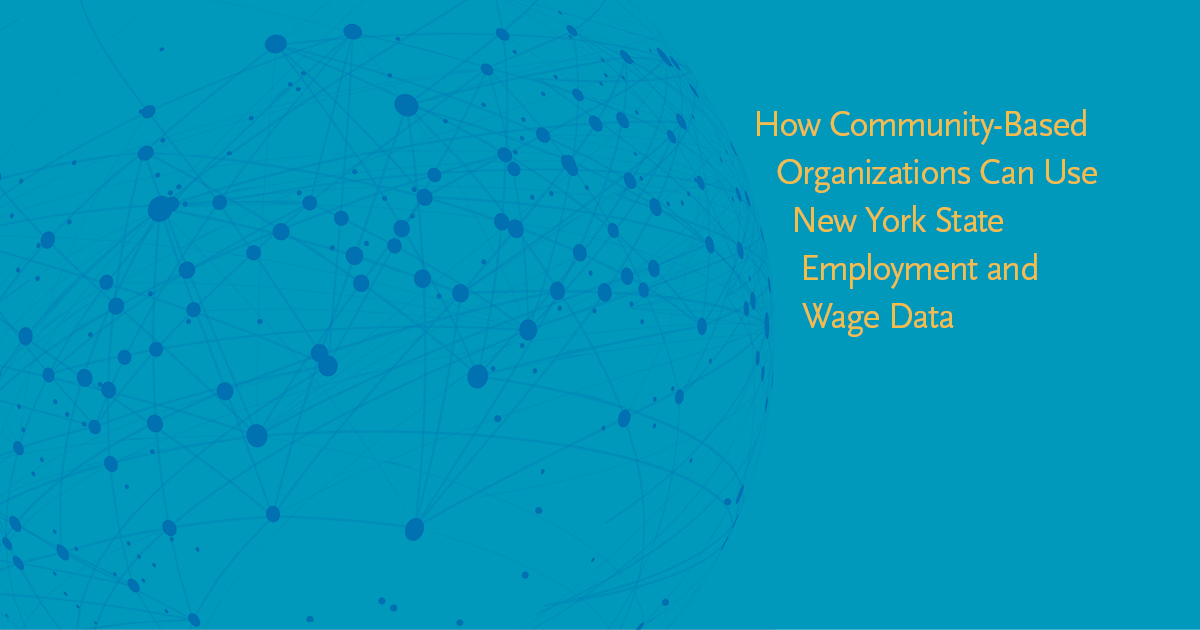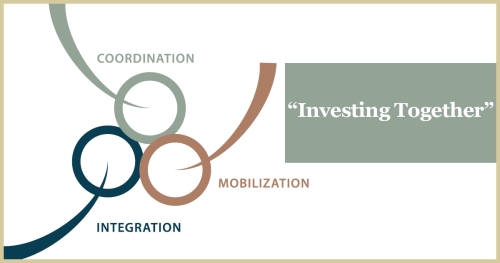Learning from the New York City Demonstration (2016-2018)
NYC Change Capital Fund’s Economic Mobility Initiative

Overview
Despite improvements to the physical conditions of many low-income neighborhoods and the reversal of the disinvestment experienced in the 1970s to 1990s, poverty and limited economic mobility remain obstacles to residents of very low-income communities. For this reason, the New York City Change Capital Fund (CCF), a collaboration of 17 foundations and financial institutions dedicated to the revitalization of distressed New York City communities, is funding an Economic Mobility Initiative.
CCF is awarding five New York City community development corporations (CDCs) up to $1 million each over four years, as well as access to technical assistance provided by Public Works Partners and the Nonprofit Finance Fund, to help the CDCs retool and refocus their strategies to address persistent poverty more effectively. The poverty rates in the selected CDCs’ respective neighborhoods range from 30 percent to over 40 percent, and residents struggle with unemployment, underperforming schools, and higher crime rates than the rest of the city.
CCF has selected MDRC to evaluate its Economic Mobility Initiative as grantees implement new and refined community-based, multidisciplinary strategies to address systemic poverty and track measurable results.
Additional Project Details
Agenda, Scope, and Goals
On behalf of New York City Change Capital Fund, MDRC will conduct an implementation study to help advance the field of community initiatives and policy by developing evidence about how community organizations can deliver and advance programs to increase economic mobility.
MDRC’s approach is a formative one, with frequent feedback loops to implementers, funders, and technical assistance providers with the ultimate goal of supporting local practice and identifying promising community-based approaches to address intergenerational poverty. Extensive early evaluation feedback about operations and deep consultation with multiple stakeholders are critical components to determining the most appropriate questions and methods to examine outcomes and impacts in the longer term.
MDRC will work together with Change Capital funders, the Nonprofit Finance Fund, and other technical assistance providers in helping the community development corporations further develop and refine their theories of change, so as to develop projects that use data to inform planning and implementation, coordinate service strategies, launch significant interventions to alleviate intergenerational poverty, and build capacity to sustain a different business model for community development.
Research questions examine 1) the development and scale-up of community-based approaches to alleviate poverty, 2) the coordination of local efforts, 3) the use of data to inform practice and document achievements, 4) the role of public policy reform in community initiatives, and 5) the ways to overcome perennial funder-grantee challenges in initiative management.
Design, Sites, and Data Sources
The five community development corporations (CDCs) selected as Change Capital Fund grantees, four of which are located in Brooklyn and one in the Bronx, include:
-
Community Solutions/Brownsville Partnership
-
Cypress Hills Local Development Corporation
-
Fifth Avenue Committee
-
New Settlement Apartments
-
St. Nicks Alliance
MDRC will employ various strategies to conduct this implementation study over the four-year grant period (2014-2018), including interviews, observations of service delivery and coordination, monthly calls with technical assistance providers, semimonthly calls with CDCs, review of data collection systems, and a social network survey.








